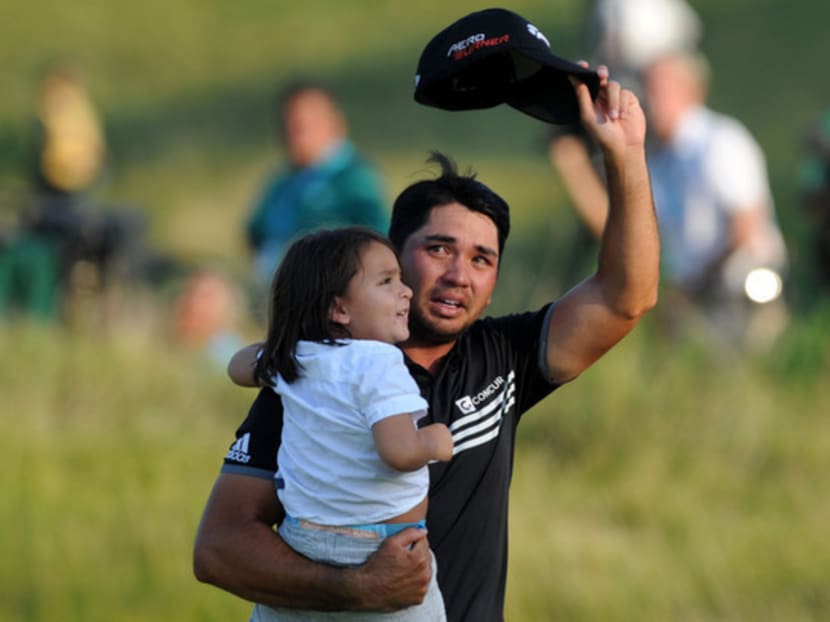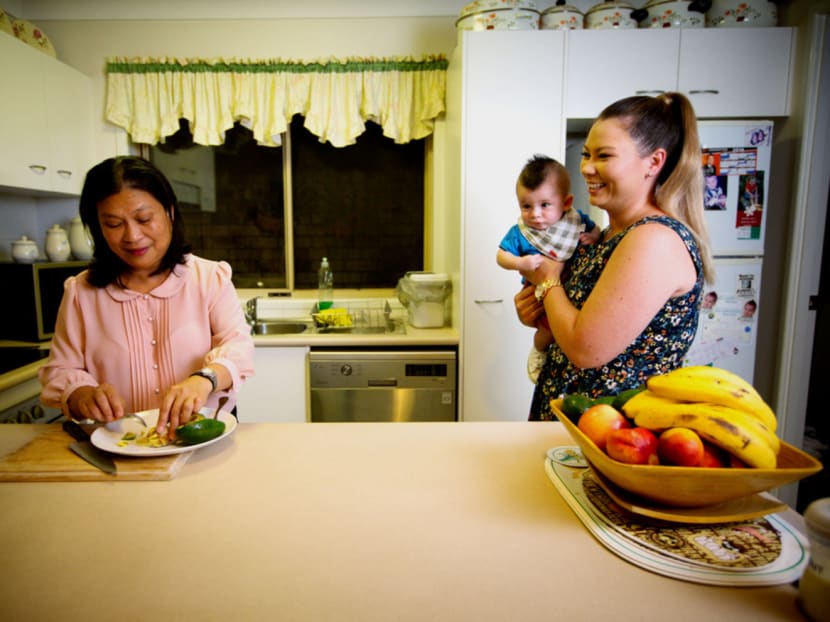Every day is Mother’s Day for Jason
BRISBANE — Jason Day’s rise to No 1 in the world began with a rusted golf club retrieved from a Queensland junkyard.


BRISBANE — Jason Day’s rise to No 1 in the world began with a rusted golf club retrieved from a Queensland junkyard.
If not for golf, his mother worried that Day would end up like his father, Alvyn, whose potential was corroded by alcohol.
Alvyn Day’s drinking left a scrap heap for Jason, his mother and his sisters to sift through. It would take them years to see the beauty that can sprout from the rubble like a red poppy pointing towards the sun.
Day, the betting favourite to win this week’s Masters, won the most recent men’s Major, the PGA Championship last August.
It was his first Major victory in 20 attempts, and he shed tears on the final green as he thought of his mother, Dening, and his sisters, Yanna and Kim, in Australia and the sacrifices they made so that he might succeed.
“With everything that went on, for me and my sisters to come out pretty normal on the other side, I think a lot of that has to do with our mum,” said Day.
From his father, Day, 28, learnt to play golf and fear failure. From his mother, he learnt how to work as if failure was not an option.
On the eve of Australia Day in January, a Monday, a sizeable portion of the country’s workforce opted to take a four-day weekend. But at shipping company Austral Asia Line, Dening Day sat in an office that was three-quarters empty, addressing import-export issues. “I don’t go on vacation,” she laughed.
Over lunch, Dening, 58, spoke of her journey from a trapped wife to a self-sufficient life, which was no less treacherous than her son’s 10-year rise to the top of his sport.
She came to Australia in search of an easier life than the one she had in the Philippines. After studying nursing in college in Manila, she took a job as a medical secretary and rented a room in a boarding house. Her landlady had a sister, who was single and registered with a marital agency in Australia.
A letter of introduction from an Australian man seeking a wife arrived one day for the landlady’s sister, but she had moved to Italy. The landlady passed it on to Dening. It was from Alvyn Day.
On a whim, Dening penned a reply. That was how she “met” Alvyn. “Maybe I was tired of Manila. I maybe had enough of working as well,” she said.
Dening hoped for a more comfortable, contented life as a wife and mother with a Prince Charming conjured by the Fates. But after the wedding, her new life in Queensland was more Brothers Grimm.
Alvyn, who had three daughters and a son from two earlier divorces, abused alcohol. He became belligerent when he drank, said Dening.
When the girls were little, Alvyn went through alcohol rehabilitation because his drinking was hindering his ability to keep a job. “He went to a lot of rehabs,” she said. Yanna, a year older than Kim and three years older than Jason, said she used to envy her brother because he grew up with the sober version of their father.
Jason was formally introduced to golf at age six, a couple of years after his father brought home the rusty 3-wood from the junkyard, where the family found many of their household items. Soon, they were spending every weekend at the golf course.
Yanna said she resented the attention Alvyn lavished on Jason. Only as an adult did she realise that she and Kim were the lucky ones. The flip side of not feeling a father’s embrace was not having to live up to his rigid expectations.
In a Golf magazine interview in October, Day said his father meted out physical punishment if he fell short of a score that Alvyn set as a goal. If Alvyn felt Day was capable of breaking 50 for nine holes and he did not, he would beat Day in the car on the way home.
“When I dressed him one weekend, I noticed some bruises on his chest,” said Dening. “He said, ‘Dad.’”
She confronted Alvyn: “Don’t you ever touch our children again, and from now on, if you take him to golf, I’ll be going with you.”
Dening started doing that. Sometimes she dragged Day’s pull cart. She believes the abuse happened only once, but Day disputed that. “Every weekend, it was sort of that way,” he said. “I loved golf so much when I was a kid, I’d go through that. I loved playing golf more than I hated the punishment.”
An administrative assistant in the same meat packing plant that employed her husband, Dening spent her nights bent over a sewing machine, making her children clothes and completing upholstery projects to sell for extra cash.
“I’d work until 4am and then wake up at 5 to watch the kids,” she said.
She maintained a stoic front, and shared her despair with no one. “I had to be tough,” she said.
When Jason was 12, he lost his father to stomach cancer. He was in the hospital room when Alvyn died.
Afterward, Jason began abusing alcohol and getting into fights in school. His mother, fearful of losing him to the streets, sold their home and borrowed money from relatives to send him to Kooralbyn International School, a boarding school known for its sports programmes that was eight hours south of Rockhampton, Queensland, where the Days were living then.
There, he came under the tutelage of Colin Swatton, who became the most influential man in his life: Coach, caddie, confidant and corrective influence for his abusive, controlling father.
Swatton accompanied Day to the US after he turned pro at 18 to help him get settled and never left his side. He will be caddying for Day at Augusta this week when they make their sixth Masters appearance together.
Yanna said their father’s death made possible Jason’s championship career. Had Alvyn lived, she explained, he would not have given up control of Jason’s golf.
After a subpar 2012 season, Day redoubled his commitment to the mental, physical, tactical and technical aspects of golf. His struggles had coincided with the birth of his first child, Dash, now three. In November, Day’s wife, Ellie, gave birth to a daughter, Lucy.
Between 2006 and 2013, Day won once on the PGA Tour. Since 2014, he has eight victories, including his last two tournaments.
The downside of Day adopting his mother’s workaholic ways is that he is too busy to visit Australia. Since leaving home, he has returned every other year to play in one or two tournaments. His main motivation is to reconnect with his mother and sisters.
He and Ellie last visited in 2013, when Day played the World Cup with Adam Scott at Royal Melbourne. “I miss my mum,” said Day, who tried to get Dening to move to Ohio. But she treasures her hard-earned self-sufficiency. So they keep in touch mostly through text messages and Skype.
Dening visited Day last August and watched him in the World Golf Championships event in Akron. A week later, she was back in Australia, following the PGA Championship on the Internet from her office desk. She will follow this week’s Masters the same way.
She would have liked to see more of her son in the last 15 years.
“But you have to let go,” said Dening. “You have to set them free.”





